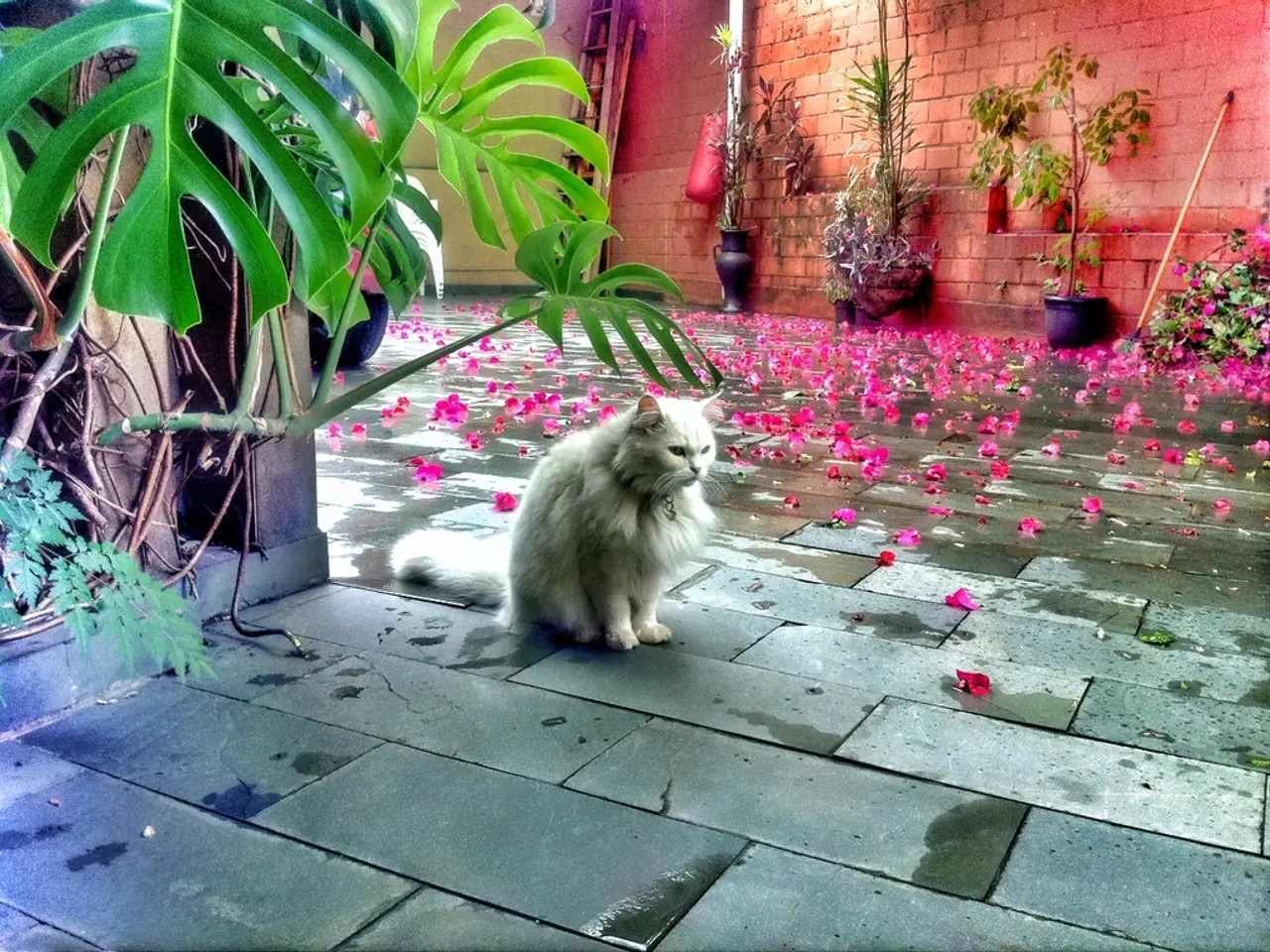Unveiled in Purulia, West Bengal: The Minuscule Feline Sensation - A Tiny Wild Cat Species is Spotted
In a remarkable discovery, the Human and Environment Alliance League (HEAL) has identified the rusty-spotted cat in Purulia, West Bengal. This small wild feline, one of the world's rarest, is now known to reside in the forests of West Bengal, marking a significant milestone in wildlife conservation.
The rusty-spotted cat, weighing between 0.9-1.6 kilogrammes, is among the world's smallest wild felids, found only in India, Sri Lanka, and Nepal. Its discovery in Purulia highlights the conservation value of 'ordinary' forests outside famous parks.
The West Bengal Forest Department, in collaboration with HEAL, has been using more than 25 camera traps in Purulia to monitor wildlife movements and mitigate human-wildlife conflicts. Meghna Banerjee, CEO of HEAL, emphasised the use of camera traps in monitoring rare wild cats like the rusty-spotted cat, indicating efforts in wildlife conservation and conflict mitigation.
The elusive nature of the rusty-spotted cat makes it extremely difficult to identify individually due to its lack of distinct markings. However, the species was recorded in three different camera traps along a trail about six kilometres inside the forest. The minimum confirmed count of rusty-spotted cats in Purulia is one, but further studies are planned to confirm their presence and numbers.
The discovery of the rusty-spotted cat in Purulia came as part of a broader pangolin conservation project. Alongside this initiative, HEAL is working on a project with WWF to mitigate conflict between people and carnivores.
To address the issue of livestock losses from carnivore attacks, a seed goat bank has been created in villages to compensate affected farmers. HEAL is also implementing an awareness program to educate local communities about rusty-spotted cats and other species, promoting coexistence strategies to protect both people and predators.
The West Bengal Forest Department has no intention of removing species like the rusty-spotted cat from their natural habitat. In fact, they are alert to ensure there is no human injury or casualty when dealing with elephant movements and other wildlife encounters.
Notably, the Sanjay Gandhi Wildlife Sanctuary in Maharashtra is already carrying out a conservation and breeding programme for the rusty-spotted cat. This development underscores the importance of collaborative conservation efforts across regions.
As the rusty-spotted cat rarely ventures into human homes or poultry farms, the discovery in Purulia's forests is a testament to the rich biodiversity of the region. The species is listed as Near Threatened on the IUCN Red List and protected at the highest level under India's Wildlife (Protection) Act (Schedule I).
This discovery serves as a reminder of the need for continuous efforts in wildlife conservation and human-wildlife coexistence. The success in Purulia offers a blueprint for similar initiatives in other regions, ensuring the survival and protection of this elusive and endangered species.
Read also:
- Peptide YY (PYY): Exploring its Role in Appetite Suppression, Intestinal Health, and Cognitive Links
- Toddler Health: Rotavirus Signs, Origins, and Potential Complications
- Digestive issues and heart discomfort: Root causes and associated health conditions
- House Infernos: Deadly Hazards Surpassing the Flames








